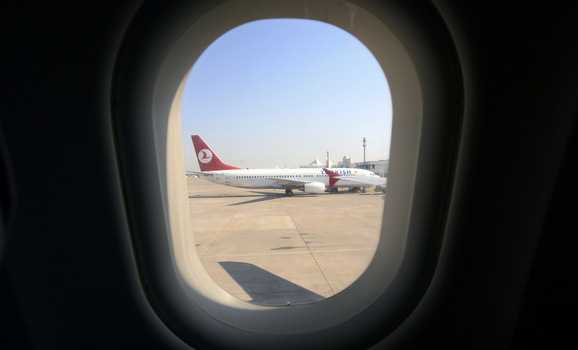Kurdistan diary
Mountains and Waterfalls
Jul 7th 2008
From Economist.com
An unconventional holiday in “The Other Iraq”
Standing in a crowded amusement park near Rawanduz, in northern Iraq, waiting to get on a small, mountainside toboggan-run while sucking an ice-lolly that claimed to imitate a watermelon (but more closely resembled chilled, sweetened, pulverised cotton wool), I cannot help but feel that my expectations of Kurdistan have been confounded.
Iraqi Kurdistan is not an obvious holiday destination. But when offered the opportunity to spend a week here, I jumped at it. While the rest of Iraq remains mired in conflict, the north is relatively peaceful. After the years of suffering under Saddam Hussein, the Kurds have finally been able to take their fate in their own hands. They are busily building a future.
The Kurdish Regional Government has launched a public-relations campaign, touting northern Iraq as “The Other Iraq”—a tourist-friendly destination. But few beyond thrill-seekers and war-zone tourists seem to have got the message. The only visitors I come across are either Kurds from the north or Arabs seeking relief from the relentless awfulness of the rest of the country. But the bustling tea-stalls are a hint of how much Kurdistan has changed from the years under Saddam.
I meet only two other Westerners during my time in Kurdistan, grizzled men from Johannesburg and Arizona. (They looked rather more like employees of Blackwater than travellers from Thomas Cook.) Our conversation consisted largely of their dire warnings about the dangers of Kurdistan. But I am determined to prove them wrong. I am here to discover the delights of this Mesopotamian idyll, whatever and wherever they may be.
Back at the amusement park, I climb into the rickety car of the toboggan-run, fasten the slightly frayed seatbelt and cram my bag between my legs before we launch down the side of the mountain. On either side of the track are sheets of chicken wire, about eight feet high. I can only assume this is there to catch us if we career off the track, to prevent us from plummeting down the side of the mountain. This does not inspire me with confidence. Neither does a sign warning of “danger of death”. Still, onward, ever onward.
Halfway down the ride, we stop our little car to take photos. The mountains are beautiful beneath the cornflower-blue sky; olive and brown, with golden grasses all the way down, flecked with lilac flowers. The Kurds’ proverbial only friends are a sight to behold.
Having survived this terror run, we drive on to the Bekhal waterfalls, one of the area’s great natural landmarks. As our minivan trundles up the steep hills, we are soon forced to switch off the air-conditioning to ensure that the engine doesn’t conk out halfway up. Sweatily munching a bag of fresh white mulberries, their skin blushed with pink, we watch a group of cyclists flash past.
It is worth the hot ride. The waterfalls are beautiful and hundreds of people are there to visit them. The waterfalls are not cordoned off. You are restrained only by your own daring in clambering up the slippery rocks. At every level, there are people picnicking, sipping tea, grilling meat, playing music.
Near expiration in the 40-degree heat, we plunge into the water, fully clothed. It is teeth-chatteringly cold but the relief is immense. In the intense heat, we are dry within minutes.
As we climb higher, we come across a group of men playing drums and pipes. They motion to us to join them. Within minutes we are dancing in a line, lurching back and forth. It is striking just how similar this Kurdish dancing is to the Jewish dancing of my childhood. The same concentric circles, the same swaying, the same steps. But given the eagerness of most Kurds to stress their unique identity, I suspect few would be flattered by the comparison.


Leave a Reply